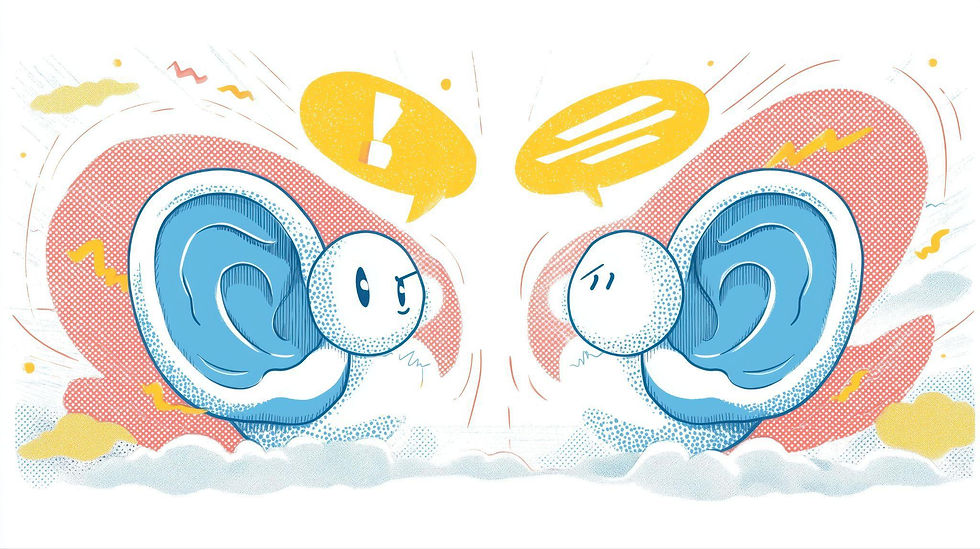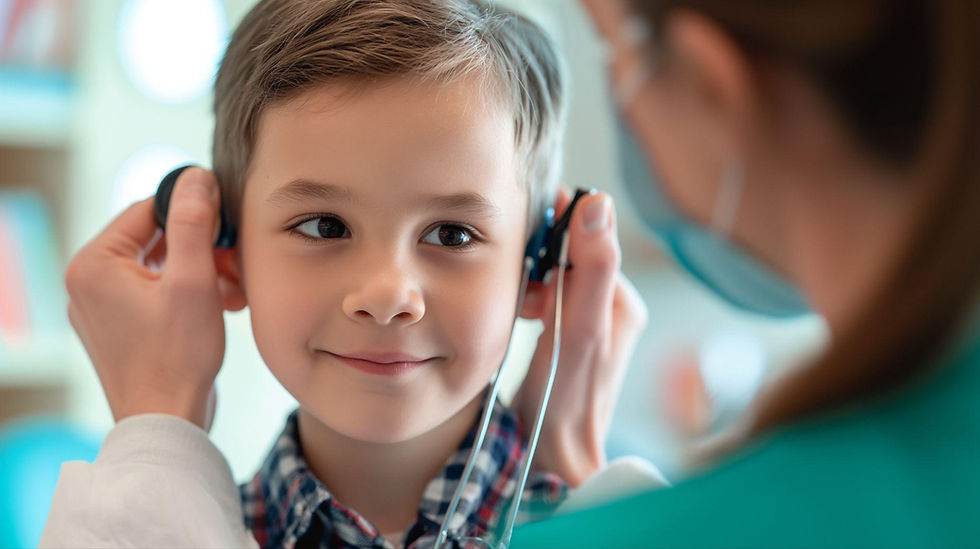At What Age Should Children Get Their Hearing Tested?
- Rick Smith
- Jun 25, 2025
- 3 min read
Updated: Nov 3, 2025

You celebrate every sound your baby makes—from the first cry to the first giggle. But what if something seems off? Maybe they’re not responding to your voice, or their speech isn’t developing like you expected. These moments can raise big questions—especially when it comes to your child’s hearing health.
One of the most important, yet often overlooked, parts of early childhood care is the hearing test. Knowing when and how often your child should have their hearing tested can make all the difference in their ability to learn, speak, and connect.
At Flex VRA , we specialize in child-friendly hearing assessments designed to detect issues early—when support can be most effective. Let’s break down the recommended timeline for hearing tests and how to know if your child needs one.
Why Early Hearing Tests Matter
Hearing is the foundation for your child’s language, social, and emotional development. If a child can’t hear clearly, it can affect how they learn to speak, connect with others, and interact with the world around them.
In fact, according to the American Academy of Pediatrics, early detection of hearing loss—preferably before 3 months of age—leads to better outcomes for speech and language development. That’s why newborn hearing screening is now standard practice in hospitals across the U.S.
Recommended Hearing Test Timeline
Here’s a breakdown of when your child should get hearing tests:
Newborn Screening (Birth–1 Month)
Most babies receive a hearing screening before leaving the hospital. If your baby didn’t, or if you’re unsure of the results, schedule one right away. These tests are painless and only take a few minutes.
Follow-Up Testing (By 3 Months)
If your baby didn’t pass the initial screening, a comprehensive diagnostic test should be done by 3 months of age to confirm whether hearing loss is present.
Infants and Toddlers (6 Months – 3 Years)
Even if your child passed their newborn screening, it’s important to monitor for developmental signs and schedule tests if you notice delays in speech, lack of response to sounds, or ear infections.
Preschool and Beyond (4–5 Years)
Routine hearing tests before starting school help ensure your child can thrive in learning environments. Many pediatricians or school systems include these screenings as part of a regular checkup.
You can read more about hearing development and milestones at KidsHealth’s Hearing Guide for Parents.

What Hearing Tests Look Like at Different Ages
At Flex VRA, we use age-appropriate techniques to assess hearing in children of all developmental stages:
Visual Reinforcement Audiometry (VRA) for infants and toddlers
Conditioned Play Audiometry for preschoolers
Standard Audiometry for older children and teens
Each test is designed to be fun, stress-free, and highly accurate—giving both you and your child confidence in the results.
Signs Your Child May Need a Hearing Test Sooner
Even if your child has passed early screenings, keep an eye out for:
Speech delays or unclear speech
Frequent ear infections
Not responding to their name
Turning up the volume excessively
Difficulty following instructions
If you notice any of these signs, trust your instincts and schedule a hearing evaluation. Early action leads to better outcomes.
Schedule a Hearing Test Today
Hearing tests are one of the most powerful tools we have to support your child’s development. If it’s time for a screening—or if you’re concerned about your child’s hearing—contact your local audiologist today.


Comments